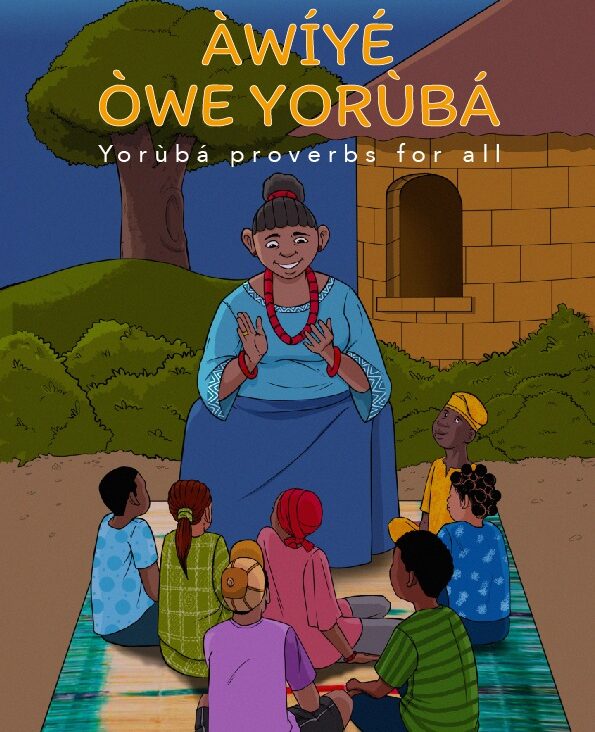Changemaker Catalyst Award recipient, Adebimpe Adegbite, completed his dissertation titled “Teaching Language and Culture: Yoruba Proverbs as an Instructional Tool”. Adebimpe is a doctoral student in the School of Liberal Arts – class of 2024.
My dissertation is titled Teaching  Language and Culture: Yoruba Proverbs as an Instructional Tool. The aim of this study is to evaluate the effectiveness of Yoruba Proverbs in teaching and acquiring/learning Yoruba language and culture. Mainly spoken in the Southwestern region of the country, Yoruba is one of Nigeria’s three national languages with speakers spread around the world. The research is a six-month study with the experimental stage projected to start by August 2022.
Language and Culture: Yoruba Proverbs as an Instructional Tool. The aim of this study is to evaluate the effectiveness of Yoruba Proverbs in teaching and acquiring/learning Yoruba language and culture. Mainly spoken in the Southwestern region of the country, Yoruba is one of Nigeria’s three national languages with speakers spread around the world. The research is a six-month study with the experimental stage projected to start by August 2022.
I spent the summer of 2022 setting the foundation for the experimental study in August. Part of my preparation included drafting and getting ready to publish the resource material to be used for the study. The book is titled “Àwíyé Òwe Yorùbá” and includes several Yoruba proverbs broken down into segments which are keywords, translation and study questions. The book is designed to be accessible by children and their parents for the purpose of acquiring Yoruba language and culture within the home. In preparation, I also made consultations with several scholars in the field and parents of prospective participants in the study. I appointed two research assistants for the experimental study to begin in Fall 2022.
The prospect of developing a framework to assist with the rejuvenation of Yoruba language and culture is very exciting for me. I received a number of positive responses from parents I consulted with who seem very enthusiastic about the study. A challenge I encountered is with publishing the resource book for the study which was stalled at multiple points in the publication process. Overall, I think my most significant achievement is being on ground in preparation for the study and completing the draft of my resource book for publication.
This research is a step toward changing the attitude and actions of parents and children in the acquisition/learning of Yoruba language and culture. I project that this study, when completed, will result in the implementation of a larger national policy that will aid the rejuvenation of Yoruba and other indigenous languages.
As a work in progress, I earnestly look forward to the beginning of the experimental study and its acceptance by parents and other members of the Yoruba community. I have learned that language questions are more complex in real life situations than within the academic community. I am learning to relate with my local community in a way that effectively communicates my message without disregarding their genuine fear and doubts in the process.
